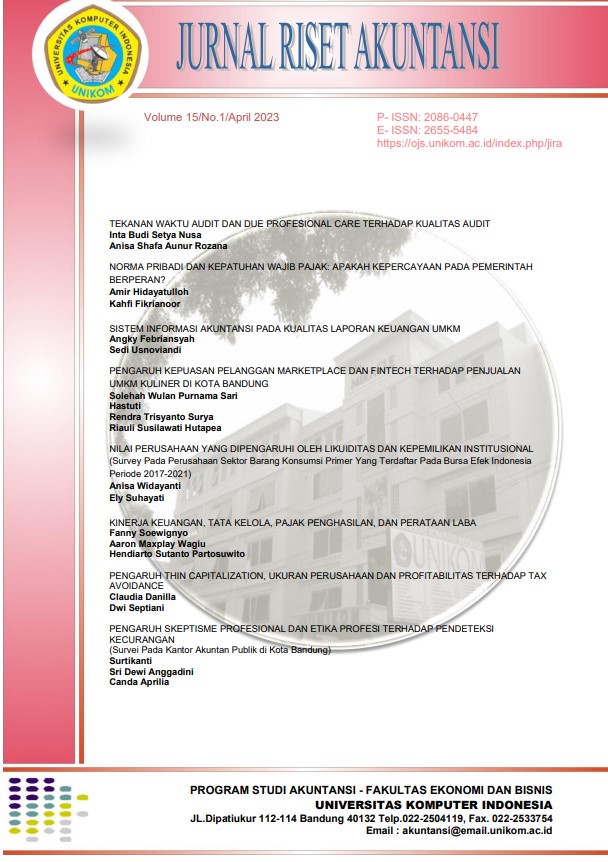FINANCIAL PERFORMANCE, CORPORATE GOVERNANCE, INCOME TAX, AND INCOME SMOOTHING
DOI:
https://doi.org/10.34010/jra.v15i1.8879Abstract
This study aims to measure the ability of financial performance, corporate governance, and income tax in predicting income smoothing practices of companies listed on IDX High Dividend 20 index during 2018-2021. The sample obtained was 16 companies selected using purposive sampling technique with a total of 64 observations. The logistic regression analysis technique was used with the dependent variable income smoothing measured using the Eckel index and five independent variables, namely dividend pay-out ratio, debt to asset ratio, debt to equity ratio, managerial ownership ratio and income tax ratio. The findings indicated that the direct involvement of investors in the General Meeting of Shareholders in determining the distribution of dividends by considering company's profit would be the reason why dividend pay-out ratio could not predict income smoothing practices. Likewise, managerial ownership and income tax could not predict income smoothing practices. A high debt-to-asset ratio could increase income smoothing practices to meet the expectations of shareholders and creditors who were interested in stable profits. Meanwhile, the higher the level of debt compared to equity indicated a high level of trust from creditors and could reduce the tendency of practicing income smoothing by presenting quality financial reports.



